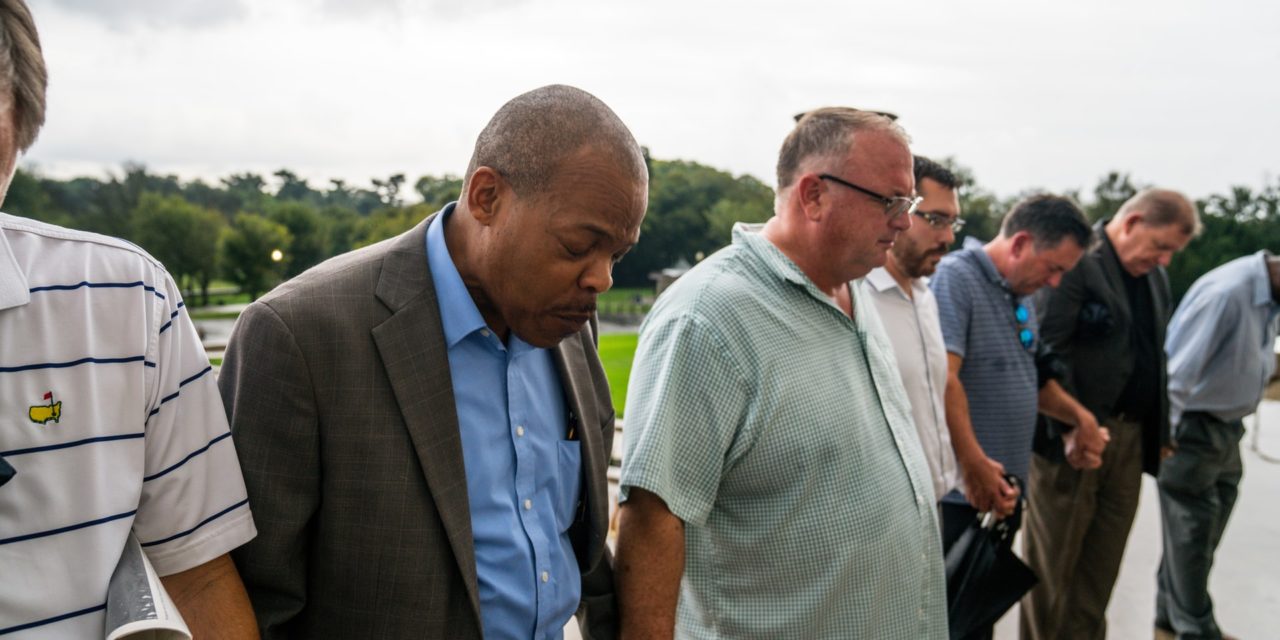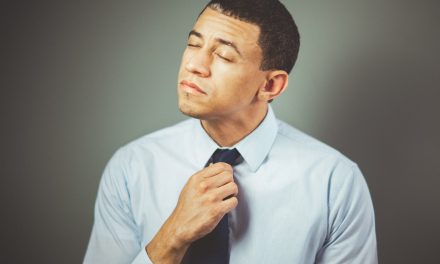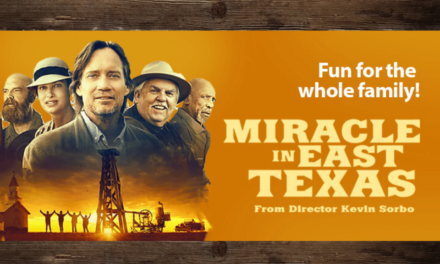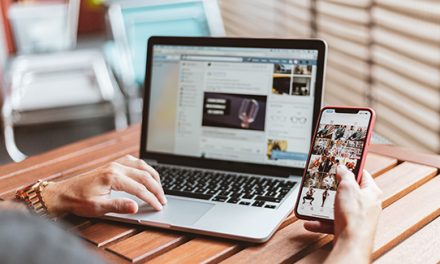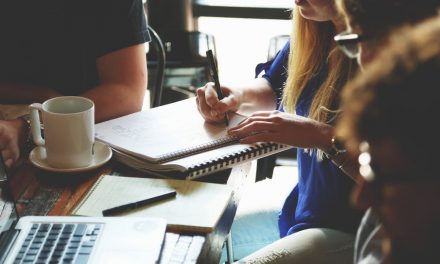A Letter to My Christian Colleagues
Racial inequity can persist in the absence of intentional prejudice. | by Michael Phillips
“I have been hurt to the point of abysmal pain, hurt to the point of invisibility.”*
Ralph Ellison
Invisible Man
In the last few years, our nation has been caught up in horrific social injustices, particularly among the black community. From the murders of Eric Garner and Michael Brown, Tamir Rice, and Trayvon Martin. From Freddie Gray to Atatiana Jefferson, to countless others who did not have the efforts of a bystander recording the violent acts that others committed against them. The murders of Breonna Taylor, Ahmaud Arbery and George Floyd have outraged us once again, sparking the outcry for justice.
As a black man, a pastor of an inner-city church, and the father of two highly accomplished black children, I find myself in “abysmal pain.” I’m bleeding spiritually and emotionally from the stinging lash of indifference. And yet, of all organizations on the planet, it is ours, the Church, that has been given the instructions and the responsibility to address and correct the wounds of society.
I know what it’s like to be profiled. I know what it’s like to have to “dress” to go to the bank, no matter how much is in my accounts, so I can challenge prejudices about who I am or where I got the money. I know what it’s like to put on a suit when I’m with peers who wear jeans so I can be treated with respect. I know what it’s like to worry about my children experiencing those moments for themselves. These feelings hurt “to the point of invisibility.” This is the everyday lived experience for many black and brown people in our country.
Perhaps you were not aware until recently that even in 2020, these things happen. Perhaps you’re tired of hearing about it.
Hurt cannot be healed until it is heard. Healing cannot occur until things are set right. So, I write this letter to the leaders in the body of Christ, hoping that we will have ears to hear so that the body can be set right to heal. The feeling of invisibility and the fact of people’s blindness are directly related. We are choosing not to see each other because we are refusing to hear each other. Not always explicitly but mostly implicitly.
Our implicit associations reside in our subconscious. We all have them. They produce attitudes and feelings which support stereotypes that affect our understanding. They develop over a lifetime, informed not only by direct messaging but also by indirect messaging.
The narrow portrayal of black and brown people in national media informs how black and brown people are talked about at our dinner tables. These images and conversations are often created by historical bias. However, when those implicit biases and beliefs are challenged and the logical course is to examine the root, the history, we defend the identity. We believe our loved ones around the dinner table are being questioned as individuals: fathers, mothers, brothers, sisters, and friends. We want to protect them and ourselves from angry accusations, labels, and libel. That passion for one another causes us to disconnect even more when dialogues are forced upon us publicly.
Mistaken belief is uncomfortable but mistaken identity is dangerous. The danger of such bias is that it cloaks the individual and daggers the opportunity to be our brother’s keeper. The complexity of such bias is that it misaligns with our declared beliefs and often does not reflect stances that we would explicitly endorse. Subsequently, when we hear the outcry of pain and see the appearance of protest, we judge the exterior and mute the noise.
Faith comes by hearing; fear lives by seeing.
The good news about such bias is that we can reframe the lens. We can become debiased, acknowledge the legitimate grievance of injustice, and offer comfort for those who are grieved by it. We can use this correct perspective as a tool to explain how racial inequity can persist in the absence of intentional prejudice.
God gave us the key to see others with the command to “love your neighbor as yourself.” Our proclivity to want to choose our neighbors confirms our bias and reinforces the barriers of injustice.
The challenges that Micah faced are similar to what we are dealing with now. The prophet Micah spoke to the tribe of Judah to issue a valid grievance, and to convey the grief of God. He said, “He has shown you, O man, what is good; and what does the LORD require of you, but to do justly, and to love mercy, and to walk humbly with your God?” (Micah 6:8).
During Micah’s time, there had been no justice for others, no desire to be compassionate, and no willingness to walk with God circumspectly. Most of Israel, blinded by individualism, fractured their strength.
The splintered nation had succumbed to the “qualified immunity” of their government, dishonest commerce, and the capitulation of their religious leaders. Consequently, right and wrong were dismissed so that the selfish goals of the powerful could be achieved swiftly. In divine frustration, God issues a defamation claim, telling His people that he has already shown them what He requires. It is not just their worship to him but also their service to others. The prophet Micah addresses the issue as the plaintiff in the covenant lawsuit that God issues against His own.
God hates injustice, which is why social justice and, more importantly, social reconstruction lies at the heart of His kingdom. Injustice invalidates the spirit. The apostle Paul echoes this sentiment in Ephesians when he says, “And do not grieve the Holy Spirit of God, with whom you were sealed for the day of redemption.”
The Holy Spirit is essential for reshaping our view towards one another and towards justice in our society. Metaphorically, the spirit comes by wind, water, or fire. These are elements that are hard to control and impossible to dogmatize. The Spirit enters this way deliberately, to keep us humble in our knowing. Without the Holy Spirit, we will continue to be separated by political ideology, cultural bias, and religious misrepresentation.
We are the body. We cannot allow the body of Christ to be dismembered continually by refusing to reframe how we see each other and how we see humanity. A lens of righteousness imbues the spirit of justice, a lens of solidarity sustains it. Our cultural adoration for rugged individualism robs us of the capacity to empathize with those in anguish. The wrong lens impairs us from seeing the structural systems that cause it. Subsequently, to avoid displacement from our so-called “moral” positions, we tend to weaponize our theology while misappropriating one another’s humanity.
Mishandling humanity is what grieved God then, and also what grieves God now. “Inattentional blindness”—the failure to notice something visible but unexpected because of focus on another object—plays a significant role in perception. Jesus died between two thieves, crucified in the middle of colliding opposites. Jesus’ position on the cross taught us that Christianity is not synonymous with crime and punishment—Christianity is identical to grace and mercy. One thief chose to see him, and one did not, but he died for them both. Each had a choice to see. Bias is a thief that prohibits us from seeing what is right in front of our eyes and destroys the opportunity to be remembered.
What would happen if we chose to see Christ in one another truly? What would happen if the entire body of Christ sought knowledge through compassion rather than comparison? We would no longer idealize our pain and demonize the suffering of others. We would no longer be loyal to conformity and pledge allegiance to tribal preference. We would be the tribe of the transplanted, creating real change. To act justly, to love mercy, and to walk humbly with God are essential qualities for people to aspire. They are also actions that are inextricably linked. To attempt to separate the link, diminishes the efficacy of our faith and swindles the spirit that guides the work.
The dehumanization of humanity should excite a more powerful response from the body of Christ than any other organization because we have been shown what to do. We were commissioned to affect change; to translate culture so that we can transform lives. We are empowered to stand in solidarity with the hurting. That’s how healing takes place, but before we can bind up the wounds of society and hold the tension of truth. Before we can reconstruct a deconstructed culture, we must admit we need healing ourselves.
Our healing rests in our ability to hear each other. Only trust will make that possible. If we would provide safe spaces to have honest discussion about how we feel, where we hurt, and what we misunderstand about one another without the backlash of being cancelled, none of us would suffer the pain of invisibility. Being one body with one hope activates the spirit of justice. It is in that spirit that I ask of all of us to have ears to hear so that we may have eyes to see. I ask that we champion reform through dialogue and empathy for real systemic change. I pray that the scales of bias fall from our eyes. Not by power nor by might but by my Spirit….

